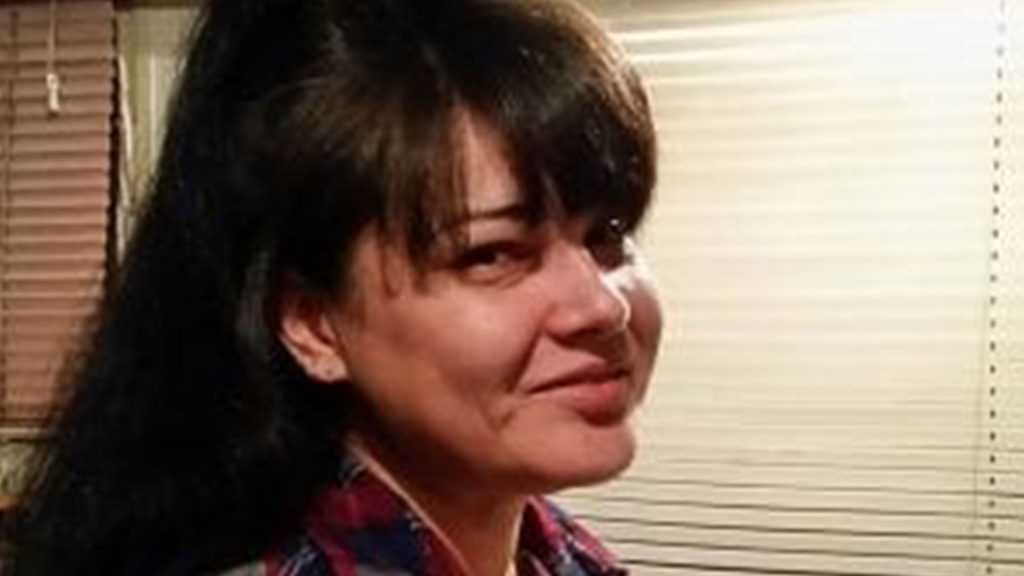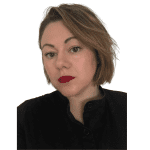
Lillian Vanasse, 40, died in an Alberta hospital in December 2020. Photo: APTN file.
Cory Ashley says he wasn’t surprised by the results of a new study which indicates up to 25 per cent of physicians in the province who responded to a survey reported explicit anti-Indigenous bias.
“It didn’t surprise me at all. Alberta has a major, major problem with Indigenous people. This report that has been done just cements the fact that [anti-Indigenous bias] is here,” said Ashley, whose wife Lillian Vanasse died in an Alberta hospital in 2020.
“It is happening across Canada, but Alberta is one of the worst.”
Researchers at the University of Calgary sent the survey to every licensed doctor in the province in September 2020 to evaluate their bias.
This survey was created after some high-profile deaths, such as the death of Vanasse.
“We have heard from patient stories and people like Cory Ashley that there’s so many stories of racism against Indigenous people in the healthcare system,” said one of the authors of the study Pamela Roach. Roach is an assistant professor at the Cummings School of Medicine.
Roach says that she and her co-researchers were motivated to do the survey because there did not seem to be enough of a focus on systemic racism.
“When we are focused on the patient stories, the system can easily externalise the problem. They can say ‘we know that is happening and it is terrible. But we don’t know where it is happening,’” said Roach.
Just over 1,000 of Alberta’s roughly 12,000 physicians took part in the survey – but only 375 of those who responded to the survey answered the questions about anti-Indigenous bias. (I re-wrote this sentence)
The study found that older physicians, those practising in urban or large rural settings, and those in surgical disciplines and those without a connection to a university had the greatest implicit anti-Indigenous bias.
In the open comments section, several white doctors say they felt they had experienced “reverse racism” from Indigenous patients.
“The most common sort of racism I have seen is an Indigenous person being racist in words and actions against white people. This is 100 times more common than the converse,” wrote one doctor.
Read More:
Cory Ashley still waiting for answers a year after his wife’s death in Alberta hospital
Quebec promises investigation after Atikamekw mother live-streams moments before her death
Roach says these comments reflect a lack of knowledge about the power imbalances that exist in the patient-doctor dynamic.
“I hear this a lot from people who feel uncomfortable with these conversations. They point to instances where people were rude to them,” said Roach.
“But when we think of racism, it is a system and there’s a lot of power dynamics at play…a whole structure of society is set up to exclude Indigenous people from society.”
Roach acknowledges that there was a response rate of 10 per cent for these questions but does not believe that the response rate means that the biases raised shouldn’t be alarming.
“But really if we’re asking people do you have bias against these people for no other reason than who they are, then that number should be zero,” said Roach.
The College of Physicians and Surgeons of Alberta (CPSA) said it was aware of the study – but no one was available for an interview.
“The health system must acknowledge the continued existence of racist and discriminatory practices and policies in health care that lead to diminished quality of care and poor outcomes for patients,” said a statement from the CPSA.
The CPSA also said that health professionals have a responsibility to protect the public by adopting anti-racist and anti-discriminatory practices.
“CPSA has formed an Indigenous Advisory Circle, through which we are working to connect with Indigenous physicians, patients and communities,” said the statement.
APTN also reached out to Alberta Health Services. No one was made available to interview but they also provided a statement.
“Racism, discrimination, and unconscious bias have no place within Alberta Health Services,” said the statement. “We are striving to improve our system, and provide an environment where everyone, including patients, families, healthcare providers, physicians and volunteers, feel safe, healthy and valued.”










